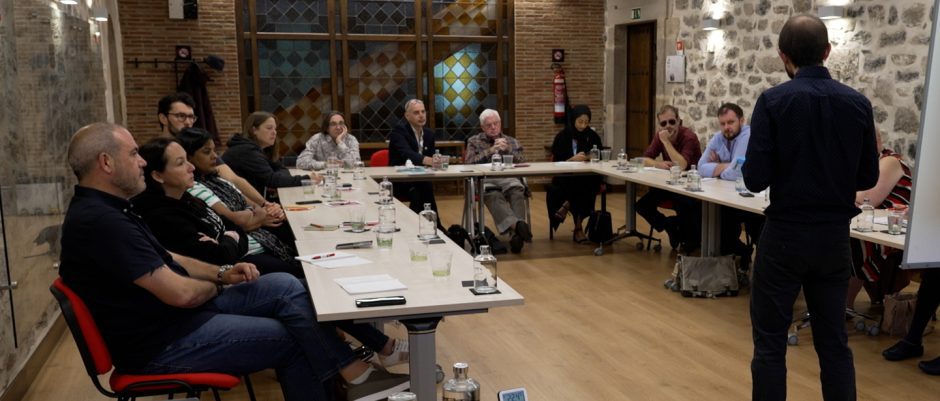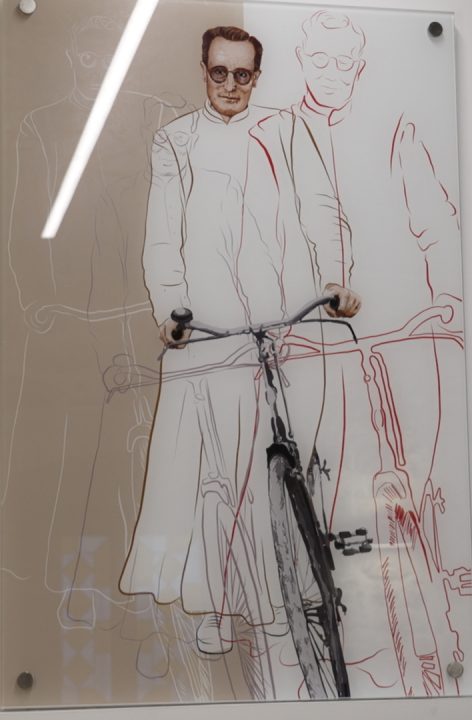With economic headwinds threatening recession and recent upheavals in national government throwing the levelling-up agenda into uncertainty, communities around the UK are increasingly making their own regeneration plans. It’s a daunting task – but all around the world, there are examples of regions which have pulled themselves up by the bootstraps using co-operative ideas.
High on that list is Arrasate-Mondragón, a provincial Spanish town with a population of just 20,000 which has been punching above its weight for several decades. Nestled in the mountains of the Basque Country, it is home to the Mondragón Corporation, a federation of worker co-ops which has grown into a major global player with an income of €12bn a year and 80,000 employees.
It’s an enviable feat which has already drawn the attention of co-op organisers in US cities Jackson, Cincinnati and Cleveland, and now the Co-operative Councils Innovation Network (CCIN) has followed suit, sending a group of council representatives on a two-day visit in September.
There is a lot to learn, and Mondragón’s success story has taken decades, which means it cannot be replicated overnight. Along with a formidable work ethic, the region is immersed in co-operative ideals – which, says the federation’s outreach officer Ander Etxeberria-Otadui, fill the local air like ‘zirimiri’ – the delightful Basque word for drizzle. “Basque weather is like British weather,” he told us cheerfully on the damp first morning of the visit; but cooperation in the UK has a long way to go before it is as ubiquitous as the rain.

For all that, the UK would be foolish to ignore this case study of a successful, autonomous, entrepreneurial, local economy. Like many co-ops, it was born in response to crisis: its story begins in the 1940s when the region was struggling in the aftermath of the Spanish Civil War. The co-op’s founder – Catholic priest José María Arizmendiarrieta – wanted to give the town a rebirth based around “the dignity of the human person”, using the values of solidarity, work and education.
After organising youth social activities and founding a local school, he headed to Madrid and managed to persuade the Franco government to green-light a worker-led business. The need to seek permission from a hostile regime left lasting lesson for the co-op, which still has no political affiliations.
Related: How Mondragon is helping Preston to develop a co-operative ecosystem
The next step saw five engineers launch Ulgor, an industrial co-op, in 1959. This grew into Mondragón: Spain’s seventh-biggest business in terms of asset turnover. It comprises 95 member co-ops, owns 132 subsidiary companies around the world, and has given its region the lowest unemployment rate in Spain.
Unusually for the co-op sector, 63 of its businesses are in the industrial sector – a legacy of the iron-rich region’s manufacturing heritage. One port of call for the CCIN visit saw us don the hard hats for a tour of the hi-tech Fagor Arrasate metal engineering plant. Fagor Arrasate has a presence in 60 countries, a turnover of more than €200m, and supplies components for sectors ranging from automotive to white goods, with customers including Whirlpool, Volkswagen and Electrolux.
CCIN also called on Ikerlan, one of Mondragón’s 14 R&D co-ops. A gleaming, ultra-modern research centre built into one of the town’s imposing hillsides, Ikerlan was positively buzzing with ideas, developing AI and robotics for sectors including transport, manufacturing, automotive and health.

Working with other Mondragón co-ops as well as businesses, laboratories and universities around the world, it employs 364 people and last year generated income of €254m. Co-ops in the federation also include leading retail chain Eroski, a credit co-op, three agriculture co-ops, and five services co-ops.
It’s an enviable success story, but the ‘zirimiri’ factor gives it a regimented feel which might be hard to replicate in the UK. Worker members are educated by the co-op through its schools and university, and doctoral students are sponsored by Ikerlan, helping to nurture the Mondragón ethos. Worker owners sign up to Lagun Aro, the co-op’s private social security system, which offers health insurance, unemployment benefit – in the unlikely event that redundant workers cannot be redeployed within the co-op – and pensions. And to join, worker-owners must pay €16,000 into the co-op; 20% of this is a membership fee and 80% is the workers’ own investment capital, which is returned to them on retirement. This pot of money can go up or down, but it’s not unusual for it to rise to €250,000.
Related: From community banks to net zero: Co-op councils look to a post-Covid rebuild
The Federation is run on a one-member, one-vote basis, with a General Assembly overseeing the Governing Council. Council members, including the president, are elected without seeking nomination or campaigning, and service is mandatory. In the UK – where co-ops sometimes struggle to persuade members to stand for
the board – this deeply ingrained cooperation might be hard to achieve. But Etxeberria-Otadui says not every worker is a born co-operator, and when CCIN visited Mondragon University, Prof Fred Freundlich assured us that “all the cultural forces that go against the co- operative spirit are as present here as everywhere else”.
The university is working to promote this spirit and is the final piece in the Mondragón jigsaw, offering world class business education and providing a pipeline talent into the federation’s co-ops.
Some takeaways from CCIN delegates
Simon Grove-White, principal economic development officer – community wealth building at Oxford City Council, noted “a direct challenge to the widely held belief that co-operatives can’t operate and compete within the economic mainstream. That’s something that has pretty profound implications for how and where we can discuss these models.”
He added that he will present the Mondragón example to his council’s Economic Growth Steering Board partners, in the hope that universities could promote the model through entrepreneurial courses; there is also potential for local authorities to support co-operative growth more actively.
“There’s definitely scope for councils to recognise and account for the additional benefits of shared ownership when factoring social value into their commercial decisions like procurement and asset transfers; I also want to explore how councils might act as a lender to new shared ownership businesses, or business looking to transfer into shared ownership or acquire new premises.”
Jonathan Nunn, strategy and policy officer (Sustainable Economy) at Kirklees Council, said: “The factory we visited could have been in Kirklees – we have many companies specialised in the same kinds of precision engineering. And the innovation centre – as well as the factory – demonstrated that worker ownership and high-tech innovation are not incompatible.
“I’m really keen to investigate the number of our SMEs in high-value sectors that have uncertain futures due to ownership succession issues as company owners seek to retire. The Mondragón experience shows that such businesses can be worker-owned, be successful and have incredibly positive benefits for their local area.”
Cllr Aniela Bylinski Gelder, South Ribble Council, warned it would be naive to think Mondragón could be replicated on the same scale. “There is an ingrained/integral culture of modesty and collectivism … although the businesses are competitive, the people aren’t.
“With the above in mind, I would like to see South Ribble nurture a co-operative environment and encourage a mixed economy of co-operative and normal businesses. Ultimately for me we need more democracy in the economy, not just politics. Anywhere we can create opportunities for more democratic decision- making around money, we should.”
Cllr Sean Laws, from Sunderland, said: “It’s a system that isn’t perfect but doesn’t claim to be. From a local government perspective, it’s a way forward in developing a more inclusive and democratic economy when the national government don’t seem to have any interest.
“After visiting, I’d put more focus into co-ops. At present, our cabinet secretary has it within his portfolio; it probably deserves a portfolio of its own.”